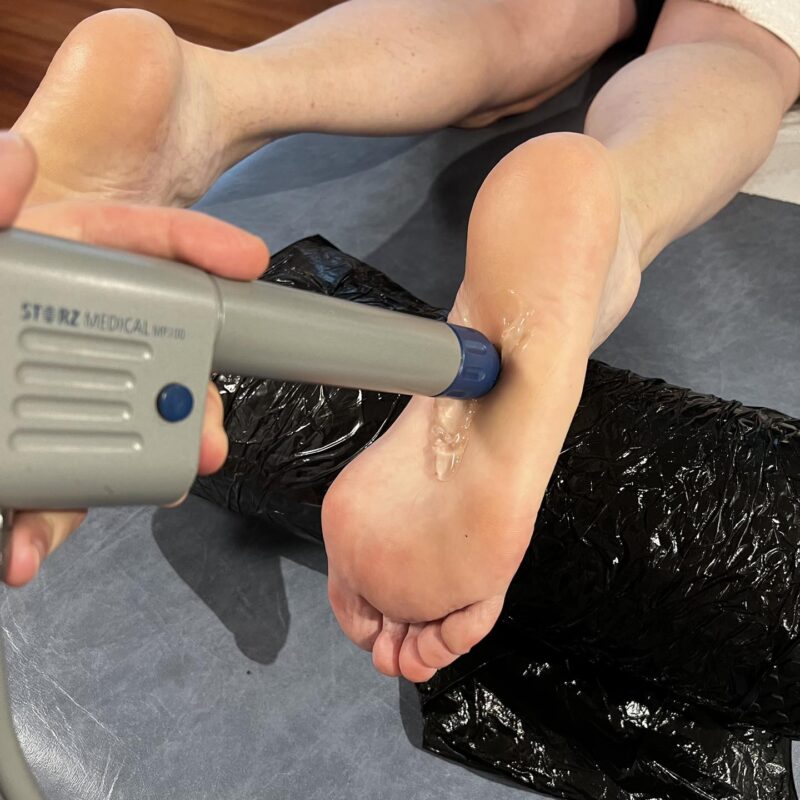Effective Techniques to Deal with Anxiety
Mastering Anxiety Effective Techniques for Management: There are millions of people all around the globe who suffer from anxiety, a common mental health issue. Emotions of dread, worry, and discomfort are characteristic of it and can significantly affect a person's day-to-day functioning. According to the World Health Organisation, anxiety disorders affect 264 million people worldwide, making them the most prevalent type of mental illness. The severe harm that anxiety may inflict makes it all the more important to learn about it and find ways to deal with it.

Key Takeaways
Several reasons, including genetics, environment, and personal experiences, can induce Anxiety.
- Anxiety is not a weakness, and it should not be stigmatised.
- Anxiety can be managed with mindfulness techniques such as deep breathing and meditation.
- Research has demonstrated that Cognitive Behavioural Therapy (CBT) helps in anxiety management.
- Medication can assist some people with Anxiety, but it can have some downsides.
- Understanding Anxiety: Causes, Symptoms, and Types.
Anxiety is a complicated disorder that several circumstances can trigger. Stressful events like a traumatic experience or significant life changes can induce it. Brain chemistry and genetics may also have an impact on it. Excessive fretting, agitation, irritability, and trouble focusing are all signs of anxiety, as are bodily manifestations like a racing heart and difficulty breathing.
There are many different types of anxiety disorders. Some examples are particular phobias, social anxiety disorder, generalised anxiety disorder (GAD), and panic disorder. Each type has a unique set of symptoms and triggers. GAD is defined by excessive worry and concern about ordinary events, whereas recurring panic attacks characterise panic disorder. An extreme fear of social situations characterises social anxiety disorder, whereas specific phobias involve an illogical fear of a specific object or scenario.
We are confronting the Stigma: Why Anxiety is not a Weakness.
Unfortunately, mental health issues such as Anxiety continue to carry a substantial stigma. Many people mistake worry for weakness or assume that it can be conquered just by effort. However, nothing could be further from the truth.
Anxiety is not a flaw; it is a legitimate medical condition that must be understood and supported. It's vital to realise that Anxiety isn't something you can “snap out of” or control on your own. It is a complex illness that frequently necessitates expert intervention and treatment.
The Power of Mindfulness: Anxiety Management Techniques
Mindfulness is a helpful strategy for alleviating Anxiety. It is the practice of paying attention to the present moment without judgement. Mindfulness can help people become more conscious of their thoughts and feelings, allowing them to gain more control over their Anxiety.
Various approaches can be taken to cultivate a mindfulness attitude. One common technique is deep breathing, which entails concentrating on the in and out sensations of breath as you take slow, deep breaths. Body scanning is another method; it entails mentally going over one's whole body, from head to toe, and making mental notes of any areas of stress or pain.
Cognitive Behavioural Therapy (CBT): A Proven Method for Managing Anxiety
Cognitive Behavioural Therapy (CBT) is a well-known and efficient way to manage Anxiety. CBT seeks to recognise and change unhelpful ways of thinking and engaging in actions that worsen anxiety.
CBT helps people recognise and overcome their unreasonable thoughts and beliefs. It also teaches students coping skills and ways to manage anxiety symptoms. According to research, cognitive behavioural therapy (CBT) can be quite helpful in lowering anxiety symptoms and enhancing general well-being.
The role of medication in anxiety management: pros and cons
Medication is a powerful instrument in the fight against anxiety, especially for people who have severe symptoms or have not reacted well to other types of treatment. Beta-blockers, benzodiazepines, and selective serotonin reuptake inhibitors are among the substances that can alleviate anxiety.
Although anxiety medication might alleviate some symptoms, it is essential to weigh the pros and cons before starting any medication programme. Medication can alleviate symptoms, improve functioning, and provide a higher quality of life. However, there may be specific adverse effects and hazards linked with prescription use.
Exercise and Anxiety: How Physical Activity Can Enhance Mental Health
For a long time, people have known that exercise can improve mental health, especially when it comes to controlling anxiety. Physical activity produces endorphins, natural mood boosters that can help reduce anxiety and increase general well-being.
Several types of exercise have been demonstrated to be very beneficial in reducing Anxiety. Aerobic exercises like running, swimming, and other similar activities raise endorphin levels, alleviating anxiety. Yoga and tai chi are also suitable for anxiety management since they mix physical activity with mindfulness and relaxation techniques.

The Importance of Sleep: How Relaxing Nights Can Reduce Anxiety
Sleep is essential for mental health, and a lack of sleep can worsen anxiety symptoms. When we don't get enough sleep, our bodies release more stress chemicals, which can exacerbate Anxiety and make it more challenging to deal with stress.
Improving sleep quality is crucial to controlling Anxiety. Some effective strategies for better sleep include sticking to a regular sleep schedule, setting a relaxing bedtime ritual, and making your bedroom a relaxing place to sleep. It is also crucial to avoid stimulants like caffeine and electronic gadgets before bedtime because they might disrupt sleep.
Nutrition and Anxiety: Foods to Avoid and Incorporate.
Nutrition has a significant impact on general health, including mental health. Certain meals might aggravate anxiety symptoms, whereas others can help alleviate them.
Those attempting to control their anxiety would be wise to avoid sugary processed foods, foods with artificial additives, and stimulants like caffeine and alcohol. This drug has the potential to induce anxiety and disturb sleep. But eating walnuts and fatty fish, which are rich in omega-3 fatty acids, can improve mood and reduce inflammation in the brain.
Creating a Support Network: Friends, Family, and Therapy
A robust support system is essential for managing Anxiety. Friends, family, and therapy can all help provide comfort and understanding.
Friends and relatives can offer a listening ear, emotional support, and assistance with practical duties. Therapy can provide a secure environment for people to examine and confront their anxiety symptoms, as well as guidance and techniques for anxiety management.
Overcoming Anxiety: Long-Term Management and Prevention
While there is no treatment for anxiety, there are ways to manage symptoms and avoid recurrent bouts. Long-term anxiety management techniques include practicing self-care, engaging in stress-reduction activities, and building healthy coping strategies.
Self-care activities like exercise, mindfulness, and hobbies can reduce stress and improve general well-being. Stress-relieving exercises like yoga or meditation can also help. Developing suitable coping mechanisms, such as journaling or speaking with a trusted friend, can assist individuals in better managing anxiety symptoms when they emerge.
There are millions of people all around the globe who suffer from anxiety, a common mental health issue. Understanding and managing Anxiety is critical since it can substantially influence a person's overall health and quality of life. Individuals can effectively manage their anxiety symptoms by practicing mindfulness, cognitive behavioural therapy, exercise, and adequate nutrition. Long-term anxiety management also requires the development of a solid support system and self-care habits. Seeking help and making efforts to control Anxiety is a sign of strength, not weakness, as well as improving one's health and happiness.
FAQs
What is anxiety?
Anxiety is a feeling of unease, such as worry or fear, that can be mild or severe. It is a normal stress response, but when it becomes excessive and interferes with daily life, it may be considered an anxiety disorder.
What are some common anxiety disorders?
Some common anxiety disorders include generalized anxiety disorder, panic disorder, social anxiety disorder, and specific phobias.
What are some symptoms of anxiety?
Symptoms of anxiety can include excessive worry, restlessness, irritability, difficulty concentrating, muscle tension, and sleep disturbances.
What are some anxiety management techniques?
Anxiety management techniques include deep breathing, progressive muscle relaxation, mindfulness meditation, cognitive-behavioural therapy, and medication.
How does deep breathing help with anxiety?
Deep breathing can help reduce anxiety by slowing down the heart rate and promoting relaxation. It can also help shift the focus away from anxious thoughts and onto the present moment.
What is progressive muscle relaxation?
Progressive muscle relaxation is a technique that involves tensing and relaxing different muscle groups in the body to promote relaxation and reduce muscle tension.
What is mindfulness meditation?
Mindfulness meditation is a technique that involves focusing on the present moment and accepting thoughts and feelings without judgment. It can help reduce anxiety by promoting relaxation and increasing self-awareness.
What is cognitive-behavioural therapy?
Cognitive-behavioural therapy (CBT) is a type of therapy that focuses on changing negative thought patterns and behaviours that contribute to anxiety. It can help individuals develop coping skills and strategies to manage anxiety.
When should I seek professional help for my anxiety?
You should seek professional help for your anxiety if it interferes with your daily life, causes significant distress, or if you experience physical symptoms such as chest pain or difficulty breathing.

























